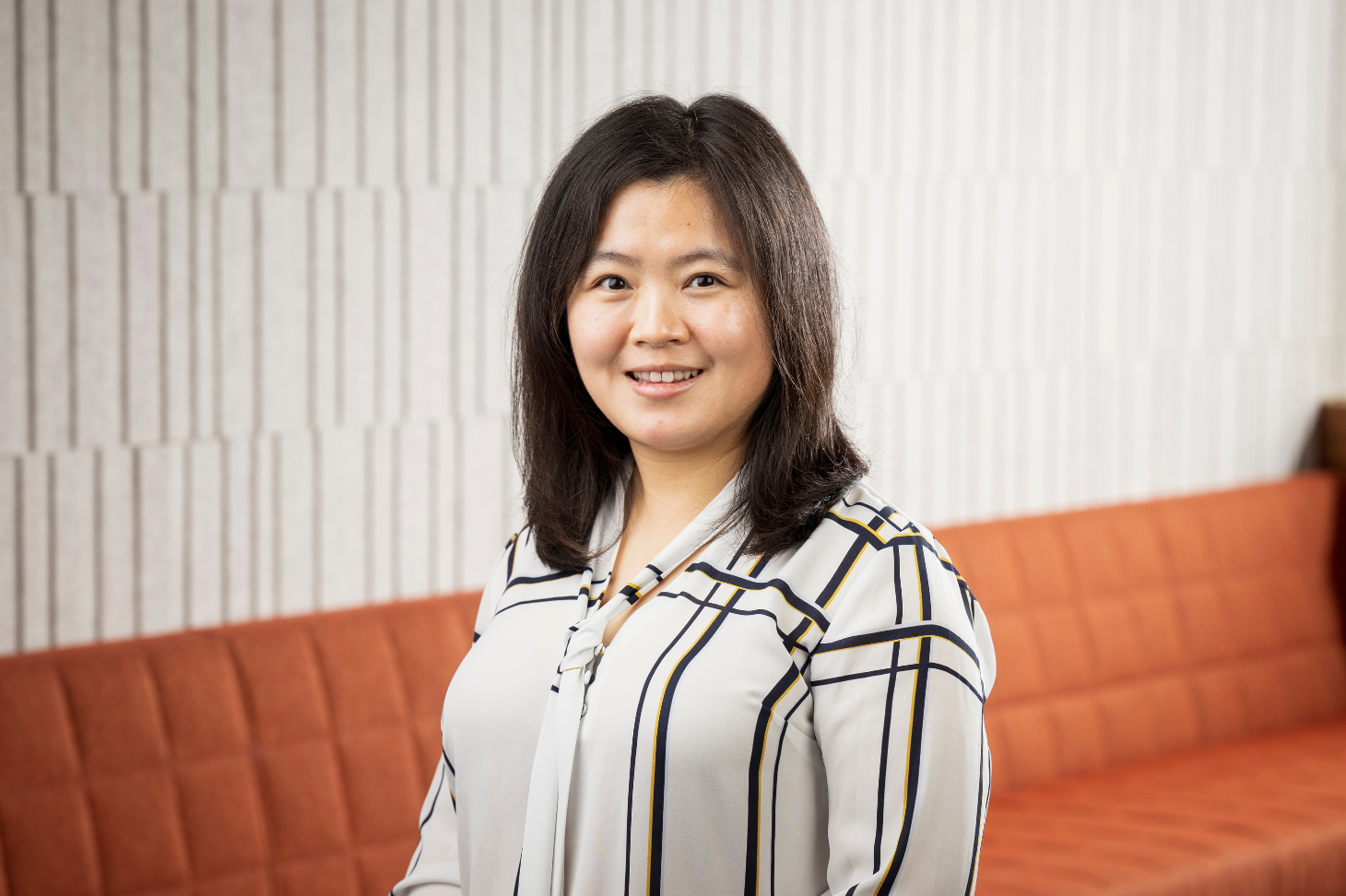News, articles, and interesting stuff from the College of Business
Oregon State’s research focus was a match for scholar of workplace fit
Assistant Professor Qi Zhang studies the fit between employees and their work environments, especially their work groups.

There’s a decorative quote in Assistant Professor Qi Zhang’s office at Austin Hall that reads: “Everything is Figureoutable.”
It’s not only inspiration for the business management researcher, but also the framed words, a gift from her husband, literally make her smile.
Everything is figures and tables, the joke goes.
“It is a motivation boost to remind me that even if I don’t have the answers to a question now, I can still work hard to get close to the truth,” Zhang said.
What is Zhang figuring out?
She studies the fit between employees and their work environments, especially their work groups. Zhang seeks to understand how employees are suited based on characteristics including values, interests, goals and work culture.
For employers, fit is an important consideration in hiring and performance. For employees, it matters in selecting suitable careers. A good fit has been shown to improve engagement, retention and productivity.
“Basically, people who fit in want to stay with an organization. People who don’t tend to leave,” Zhang said.
Her current research looks at how employee perception of fit affects job performance, attitudes and ultimately turnover. Using anonymous data from real organizations, Zhang can predict turnover outcomes and provide consultation to these businesses to improve fit.
Among the “misfits” are people who say they dislike their workmates or work group, are unable to get along, can’t do the expected work, say the organization does not support their needs or don’t believe in their work.
Zhang said both employers and employees can benefit from learning about fit.
An organization can do many things to improve the perception of fit among workers, like making communication clearer and understanding why employees underperform.
“You need to pay attention to fit after hiring and recruiting,” Zhang said. “Do they have open channels? Do they encourage collaboration and idea generation rather than just following the rules?”
One of the major questions Zhang is trying to answer is what employees can do if they find themselves not fitting in at work. Specifically, she wants to know what strategies can improve the perception of fit.
One thing Zhang recommends is using the U.S Department of Labor database that evaluates vocational interests and matches them to occupations with the best fit. It’s an underutilized tool, according to Zhang. This objective information could help more people find occupations that speak to their interests.
Zhang joined Oregon State in 2021 because the university’s research focus fit her professional aspirations. As a newcomer to the Pacific Northwest, she’s discovered a love for trail running.
She also enjoys teaching a course on managing individual and team performance, a prerequisite for higher level management degrees. The class allows students to explore the specific conditions that make organizations successful as fit becomes even more important and relevant.
“Research is demonstrating that Generation Z evaluates their fit with an organization in different ways than people from earlier generations,” Zhang said. “It imposes more challenges and more opportunities for leaders to make an impact.”
Students, job seekers and other career explorers, discover your work interests at the My Next Move database, or take a comprehensive look at occupations at the O*NET Online database.